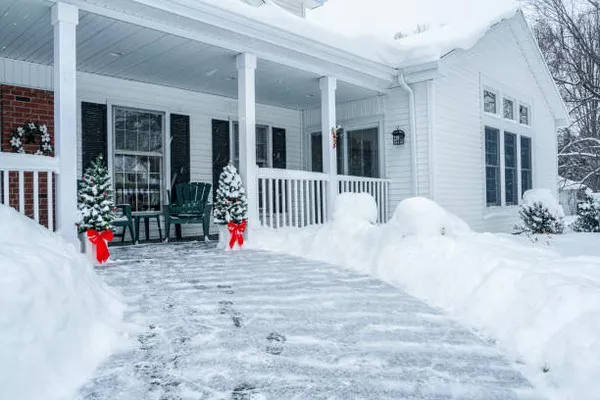As winter descends upon us, homeowners and property managers alike are gearing up for the inevitable battle against snow accumulation. Among the essential tools in this arsenal, the snow blower stands out as a powerful ally in the fight against the icy blanket covering driveways and sidewalks. However, concerns have been raised about whether the use of snow blowers can cause damage to driveways. In this article, we aim to explore the potential impact of snow blowers on driveways, dispel common misconceptions, and offer practical tips to minimize any potential damage.
Understanding Snow Blower Mechanics
Before delving into the potential impact on driveways, it’s crucial to understand how snow blowers work. Snow blowers, also known as snow throwers, are mechanical devices designed to remove snow from surfaces by scooping it up and propelling it away. There are two main types of snow blowers: single-stage and two-stage. Single-stage snow blowers use an auger to scoop up and throw snow in one motion, while two-stage models have an additional impeller that throws the snow at a higher velocity. Both types are powered by engines, typically running on gasoline or electricity.
Surface Material Matters
One of the key factors influencing the impact of snow blowers on driveways is the material of the driveway itself. Driveways are commonly made of materials such as asphalt, concrete, gravel, or pavers. The vulnerability of each material to potential damage varies.
Asphalt: Asphalt driveways are generally more resilient to the force exerted by snow blowers. However, repeated and aggressive use may lead to the displacement of loose asphalt particles over time.
Concrete: Concrete driveways, while sturdy, can be susceptible to damage if the snow blower is not used correctly. Avoiding prolonged contact with the surface and using the appropriate settings on the snow blower can minimize any potential harm.
Gravel: Gravel driveways pose a unique challenge, as the moving parts of a snow blower can pick up and propel loose gravel along with the snow. Adjusting the blower height and using caution can help mitigate this risk.
Pavers: Driveways made of interlocking pavers may experience shifting or damage if the snow blower’s auger catches on the edges of the pavers. Careful operation and adjusting the blower’s height are essential to prevent such issues.
Common Misconceptions
Several misconceptions contribute to concerns about snow blowers damaging driveways. Addressing these misconceptions can help homeowners make informed decisions when using these snow removal tools.
Scratching and Scuffing: Many fear that the metal or plastic components of a snow blower may scratch or scuff the surface of a driveway. However, modern snow blowers are designed with materials that are less likely to cause cosmetic damage when used correctly.
Impact on Sealed Surfaces: Some homeowners worry that using a snow blower will compromise the integrity of sealed driveways. While it’s advisable to follow manufacturer recommendations for maintenance, properly sealed driveways can withstand the occasional use of snow blowers without significant harm.
Displacement of Loose Materials: The movement of snow blowers may lead to the displacement of loose materials on driveways, such as loose gravel or small stones. Adjusting the height of the snow blower and using caution can help minimize this issue.
Practical Tips for Minimizing Damage
To ensure the safe and effective use of snow blowers without causing undue harm to driveways, consider the following practical tips:
Adjust the Height: Most snow blowers come equipped with adjustable height settings. Set the blower height according to the type of surface you are clearing to avoid unnecessary friction and potential damage.
Use Caution on Gravel: When dealing with gravel driveways, exercise caution to prevent the blower from picking up loose stones. Adjust the blower height and consider using a snow blower with a larger clearance to reduce the risk of gravel displacement.
Regular Maintenance: Keep your snow blower in optimal condition by following the manufacturer’s maintenance guidelines. This includes checking and adjusting the skid shoes, ensuring proper lubrication, and inspecting all moving parts.
Clear Debris Before Use: Before using a snow blower, remove any debris, branches, or obstacles from the driveway to prevent them from getting caught in the blower’s auger.
See Also What Size Snowblower Should I Get?A Comprehensive Guide
Conclusion
While concerns about snow blowers damaging driveways are not entirely unfounded, the key lies in responsible and informed usage. By understanding the mechanics of snow blowers, considering the type of driveway material, and following practical tips, homeowners can confidently wield these powerful winter tools without causing unnecessary harm. As with any equipment, responsible operation and regular maintenance are crucial to ensuring a driveway remains unscathed while efficiently combating winter’s snowy onslaught.

